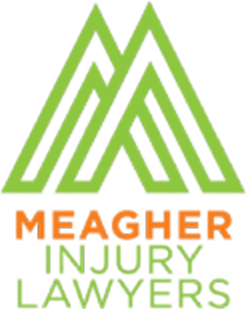
Elizabethtown Nursing Home Abuse Lawyer
Anyone in a nursing home should expect to be appropriately cared for by experienced staff. Sadly, some residents suffer abuse and neglect. Whether you are a resident of a long-term care facility or have a loved one you have entrusted to a nursing home, you may benefit from seeking legal help after an instance of abuse or neglect.
If you are concerned about the level of care provided at a long-term care facility, consider contacting a nursing home abuse lawyer. A dedicated personal injury attorney from our firm could help you understand the rights of nursing home residents and take legal action if necessary.
Potential Causes of Abuse and Neglect in Long-Term Care Facilities
Residents in nursing homes are typically seniors and adults dealing with disabilities. Unfortunately, these vulnerable members of our society can be subjected to severe harm in nursing homes.
Those who work in long-term care facilities are often overworked and underpaid. These problems are compounded when the population of these nursing homes grows. Residents who are most vulnerable due to age or disability may be unable or afraid to report abusive or negligent behavior.
The 2019 Coronavirus Pandemic
The coronavirus pandemic that began in late 2019 exacerbated problems at nursing homes that lead to abuse and neglect. COVID-19, the disease caused by the novel coronavirus, is more dangerous to older populations and those with underlying conditions—the primary demographic in nursing homes.
The combination of staffing and training problems and the disease outbreak made nursing homes particularly dangerous during this time. Nursing home residents or family members of residents should get in touch with a local attorney if they have experienced or suspect any type of abuse or neglect.
Identifying Signs of Abuse and Neglect in a Nursing Home
Outright physical abuse is somewhat rare in nursing homes. Neglect, emotional and verbal abuse, and financial exploitation are more common forms of mistreatment. Because abuse is not always physical, it can be difficult for family members to determine when a loved one is being mistreated in a nursing home.
Signs of abuse or neglect in a nursing home include:
- Bedsores
- Malnutrition
- Dehydration
- Inadequate sanitation
- Unexplained bruises
If a nursing home resident shows fear or anxiety when around a particular staff member, that may also be a sign of abuse. Those who have noticed signed of abuse or neglect in a nursing home should consider talking to a lawyer as soon as possible.
Elder Abuse Laws in Elizabethtown
Seniors and other adults who cannot manage daily tasks or protect themselves from abuse or neglect in nursing homes are protected under Kentucky Revised Statutes Chapter 209. Nursing homes must meet minimum staffing requirements under KRS § 209.170.
Additionally, those in certain roles or professions who witness nursing home abuse are required to report it under KRS § 209.030. Further, under KRS 209 §.180, those who perpetrate nursing home abuse may face a civil lawsuit by the injured person or their family and the state.
Personal Injury Claims for Nursing Home Abuse
Individuals who suffer elder abuse in a nursing home, along with their family members, may be able to pursue legal action against the facility where the abuse occurred. Complaints to those that regulate elder care facilities can be the basis of a civil lawsuit.
A knowledgeable attorney could explain how a civil lawsuit can help injured parties recover compensation for economic and non-economic losses related to the nursing abuse.
Get in Touch with an Elizabethtown Nursing Home Abuse Attorney
If you or a loved one has experienced nursing home abuse, an experienced attorney may be able to help protect your legal rights and obtain compensation for your injuries. Elder abuse is a difficult topic, and you are not alone if you feel like you do not know what steps to take if you are concerned.
An Elizabethtown nursing home lawyer may be able to help you understand elder abuse laws and the steps you might take to protect yourself or your loved one. Reach out to us today to schedule a free consultation and begin working on your case.
MEAGHER INJURY LAWYERS
PRACTICE AREAS
TESTIMONIALS
WHAT OURCLIENTS SAID
Mr. Tate Meagher represented me and I could not have asked for a better lawyer. Tate was responsive, kept me updated and in a timely manner, showed empathy and compassion, and worked extremely hard on my case. He not only worked with me, he worked for me, and fought hard on my behalf. Tate always had my best interest at heart. I was extremely pleased with the outcome of my case and I had a wonderful experience under his representation. I would recommend Meagher Injury Lawyers (Tate Meagher) to anyone seeking a lawyer.
Tate Meagher
Attorney Tate Meagher did an outstanding job representing me following a car accident o could not be happier with his services. He is very responsive and he fought very hard for my case. He did not ever give up. So if you are looking for an attorney who will fight hard for you and win, you need Attorney Tate Meagher.

